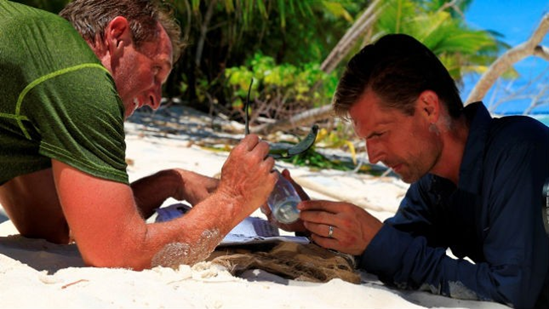What is wealth and where does it come from?
“Business has only two functions — marketing and innovation.” Peter Drucker
When most people think of wealth they think of a surplus of assets over liabilities, and this is one definition of wealth. But wealth is not just what you have but what you can do with it. A multi-millionaire in the 1800’s had limited wealth compared to one in 2015 because the multi-millionaire now can do so much more with their wealth. There are many more things you can spend your money on. Goods, services and experiences are all more widely available. Imagine being a multi-millionaire on a desert island where there are no shops and nothing to buy. Assuming you can’t leave, would you really be wealthy?
So where does wealth come from in the first place? And by wealth I don’t mean just money. Money is the means by which we can easily store and exchange wealth but it doesn’t explain wealth. Otherwise the government could just print more and make everybody rich! We may measure wealth by reference to money but it doesn’t explain where it comes from. How do we make £1 into £2?
To explain this process let me take you (metaphorically) to a desert island. In fact let’s assume there are three of us on the island; you, me and Bart. To start with we operate individually, collecting our own water, hunting our own food and building our own shelters. We have to work hard and have very little time left other than to sleep. But then we decide to cooperate. I am good at getting water (I have bigger buckets!), you are better at hunting for food and Bart is excellent at building shelters so we decide to specialise. I can get more than 3 times the water in less than the time it takes you to get water for one. You develop expertise at hunting, after all you have nothing else to think about now, and Bart now uses the best wood to make a bigger more sturdy construction we can all shelter in. Because he is based in one place he can also keep the fire going all day, with some of the wood he collects but does not need for the shelter. We are all now better off. We are all more wealthy. We have more water, more food and better (and warmer) housing and more time to enjoy these things and more time to enjoy the beach. We have created wealth! Bear Grylls take note!
In this desert island example we swapped value for the good of all of us. A sort of commune! In the real economy we monetarise the value we receive with prices and temporarily store that value in money. If we used money on our desert island I can sell you and Bart the water in exchange for money and hang on to it for a while before deciding to exchange it for food and shelter later on. The amount of money wouldn’t change in total as we continually swapped it and we would be no more wealthy then we were before we introduced the money. Money doesn’t create wealth. It merely sorts out a few timing issues. The point is this; You and Bart value my water more than I would because, a)you needed it and; b) the price you would pay to avoid getting it yourself is higher than the value I associate with getting it. You win and I win, and so it is with the food and shelter exchange.
To complicate matters slightly, let’s introduce a simple idea of competition. Let’s say Bart decided to also hunt food while he was not maintaining our shelter. I now have a better bargaining position because he may demand less water in exchange for the food than you do. You don’t take this lying down and go and hunt better quality food. I can now buy cheap food from Bart or better quality food from you. Partly because I have lots of water I opt for your better quality food. You use all the experience and expertise you have developed to offer me a better deal than Bart who, no longer has a customer and goes back to maintaining the shelter. We’ll have to keep an eye on him!
So what were the sources of wealth on our island? They were:
1. My buckets (or my ability to find and maintain better buckets)
2. Bart’s building know how. His knowledge and tools and his access to the raw materials to do the work
3. Your expertise on the best places and ways to successfully hunt good quality food
4. We all operated on a larger scale than we would have if we were only providing for ourselves (economies of scale) and:
5. We developed our own knowledge and expertise by continually doing one thing (economies of scope)
These are the same ways small businesses create wealth. They use knowledge and expertise, tools, assets, systems and relationships to create value, which when traded, create wealth. Trade is the way we collaborate to create wealth. (How many i-Phones would your family have if you had to make them yourselves?) This is a “win win” arrangement. It is not a zero sum game where someone has to lose if someone else is to win.
Knowledge, capability, tool design, relationships and systems are collectively known as intellectual capital and are the source of all wealth. Even oil is only valuable because a human brain invented the combustion engine. Before man found a use for oil it was a tragedy if a farmer struck oil because it meant he couldn’t farm the land.
Financial wealth on its own won’t make you happy, but on balance it’s better than the alternative!
We’d really appreciate your contribution so please do add your thoughts using the comments box below.


Leave a Reply